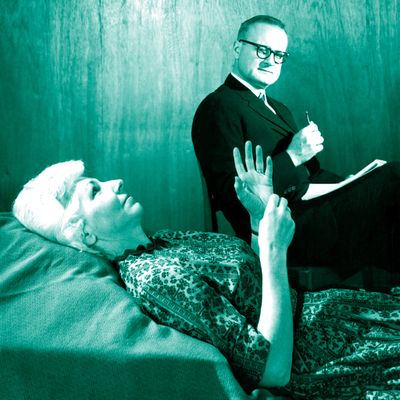
If you give a man a fish, he can eat for a day; if you teach a man to fish, he’ll be richer forever. Similarly, if you give someone a pill for their social-anxiety disorder, they may feel better temporarily; but if you teach them to manage their emotions, they’ll be more functional forever.
This is the gist of a promising study of a randomized control trial of 102 patients in Psychotherapy and Psychosomatics. A research team lead by Hans Nordahl of the Norwegian University of Science and Technology found that a year after treatment, patients with social-anxiety disorders who had completed cognitive behavioral therapy (CBT) had a 68 percent recovery rate, compared with 24 percent who had taken paroxetine, an antidepressant sold under Paxil and other brand names in the U.S. The pill placebo group had just a 4 percent success rate. Tellingly, the “combination” group that used both the therapy and the drug only had a 40 percent success rate.
This is because, Nordahl said in a statement, patients in the combination setting rely on the drugs to make them healthier. “They become dependent on something external rather than learning to regulate themselves,” he said. The flavor of CBT that Nordhal and company used is called “metacognitive therapy,” meaning that therapists teach their patients to think more about their thinking, and analyze their reactions and beliefs to the thoughts that they have. This involves training patients in being able to step out of the cycles of rumination that are so much a part of debilitating, disordered anxiety. Locus of control, or whether you think your life is a result of your actions or outside forces, also seems to play a role here: “The medication camouflages a very important patient discovery: that by learning effective techniques, they have the ability to handle their anxiety themselves,” Nordhal said. This involves training patients in being able to step out of the cycles of rumination that are so much a part of debilitating, disordered anxiety.




